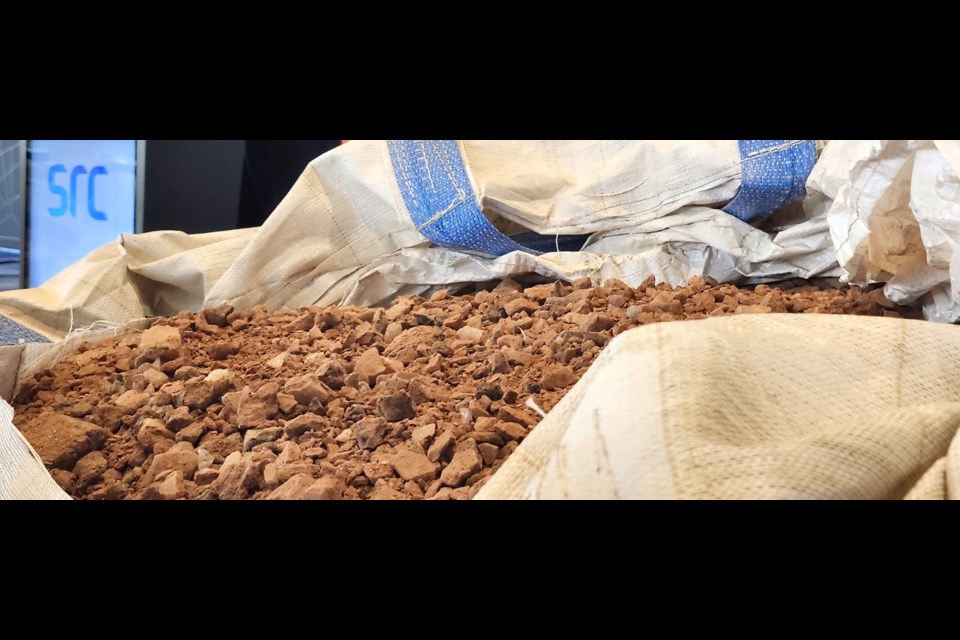SASKATOON — The Ministry of Energy and Natural Resources will invest over $16 million in federal money in Saskatchewan's critical minerals industry. The funds will improve the province's facility and increase the capacity of processing bastnaesite, which has rare earth elements used for magnets for microphones, mobile phones, speakers, and other communication devices.
Energy and Natural Resources Minister Jonathan Wilkinson said the funding is new money that Natural Resources Canada had allocated to improve the rare earth processing plant's facility and other infrastructure in the province. The announcement was made in Saskatoon Wednesday.
"[The funds], in the context of the broader work on the critical mineral strategy, we decided that this was an important priority, and so we allocated this money to help develop the processing technology that's going to allow us to be profitable and prosperous, but also be fully independent," said Wilkinson, who stood in behalf of PrairiesCan Minister Dan Vandal.
"Countries around the world look for technology development. We do that in a whole range of spaces. That is what we're doing here, getting to the point where we have systems and processes that allow us to do the work that needs commercialization. In other countries, including Canada, governments invest money in developing commercial facilities like battery plants."
The over $16M funding includes $15.96M through PrairiesCan to allow the Saskatchewan Research Council to acquire bastnaesite from Canadian sources and integrate it into SRC's rare earth processing facility in the city. NRCan invested $209,330 under the Critical Minerals Geoscience Initiative for SRC to create a database of mineral characteristics to increase public awareness of critical mineral deposits in the country.
MLA Jeremy Harrison, the Minister Responsible for SRC, said Canada is fortunate to have an enormous amount of natural resources, such as rare earth minerals, essential in today's ever-changing technological industry.
"Rare earth minerals are essential. Things like your phone, for example, would not work without rare earth elements. Most modern life tools do not work without rare earth elements. We are dependent on China to supply those rare earth elements," said Harrison.
"It is viewed both at the provincial and national levels, even internationally, that having more control over that rare earth element supply chain is a significant challenge. The economics are such that the Chinese put their market dominance and were able to manage and control the price."
SRC President and CEO Mike Crabtree said bastnaesite ore contains 17 rare earth elements critical for modern life, especially the devices we use daily and how they would help us transition to greener energy sources.
"We're moving from hydrocarbons to energy minerals. These rare earths are critical to developing that energy change in electric vehicles. We hear about lithium; it is the gas tank of an electric vehicle. So, this is why the ores and the development of this midstream processing is so important," said Crabtree.
He added that Canada has already moved ahead of China in the rare earth market as it controls 90 per cent globally, and the money that would help fund SRC to develop new processing technologies would further its cause.
"It is not only producing mining the ore and being able to export it to China. It is to have it processed here. To get that additional value and be self-sufficient on rare earths as we go forward in the coming decades," said Crabtree.
"SRC's job is to be a pathfinder to catalyze the market. The purpose of the plants that we're building here is to derisk the technology, financials, and markets. Once we've done that, private investment will come into the province and Canada. We will see commercial operations before the end of the decade."




